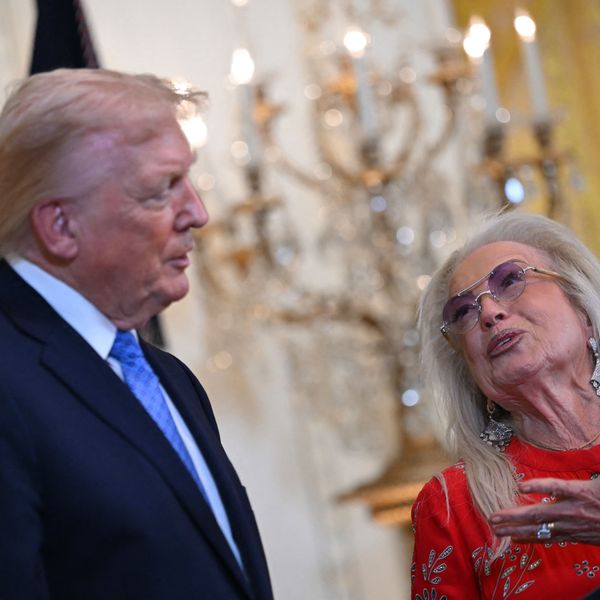Eleven of the top 50 individual contributors to political campaigns this election cycle work in the finance industry—specifically in private equity—and are betting big on congressional and presidential candidates who will protect one very special federal tax break worth billions of dollars to them: the carried interest loophole.
So far this election cycle, these 11 private equity billionaires have already contributed more than double the amount that more than 147 private equity firms pumped into federal elections in all of the 2016 election cycle. Private equity—which largely entails rich investors buying and selling companies—is only a part of a larger finance industry that includes hedge funds, securities firms, banks, and investment companies and managers.
This loophole, of course, is not the only tax perk that private equity firms favor. They also push to keep the tax rate on capital gains much lower than the tax rate on ordinary income.
Finance—securities and investments—tops the list of industries giving the most money to date this round, with more than $1 billion in contributions to candidates, parties, and PACs, according to the nonpartisan political funding tracker Open Secrets.
The 11 private equity leaders have contributed more than $223 million to congressional and presidential candidates and the super PACs that support them, accounting for almost 20% of all money contributed by thousands of companies in the finance sector, according to Open Secrets data. During the 2016 election cycle, the Center for Media and Democracy (CMD) reported that the 147 private equity firms it analyzed contributed $92 million to candidates and super PACs.
The carried interest tax deduction allows private equity investment managers to pay a lower 23.8% tax rate on the capital gains passed on to them as compensation rather than the top income tax rate of up to 40.8% they would pay on the same amount if it were considered wage or salary income.
“Carried interest is a form of compensation paid to investment executives like private equity, hedge fund and venture capital managers,” CNBC explains. “The managers receive a share of the fund’s profits—typically 20% of the total—which is divided among them proportionally. The profit is called carried interest, and is also known as ‘carry’ or ‘profits interest.’”
The $223-million investment these 11 private equity billionaires are making in campaign contributions in hopes of keeping the loophole intact will save the industry an estimated $14 billion in taxes over 10 years, as Senate Democrats pointed out in 2022 when they were forced to let go of legislation to get rid of it.
This loophole, of course, is not the only tax perk that private equity firms favor. They also push to keep the tax rate on capital gains much lower than the tax rate on ordinary income. And some private equity managers have other public policy interests, like billionaire Jeffery Yass, the largest individual donor this election cycle, who gives millions of dollars to school choice groups and other conservative causes.
On April 15, 2024, Sen. Tammy Baldwin (D-Wis.) introduced the Carried Interest Fairness Act (S. 4123), which she co-sponsored with 14 other senators, in order to eliminate the tax loophole, something that Democrats have long sought to fix. The proposed legislation treats the buying and selling of companies as ordinary income if that is a firm’s primary business. “By closing the carried interest loophole, we’ll make our tax code fairer for working families, cut the deficit, and ensure that those at the top of the food chain aren’t exploiting the system to further enrich themselves,” Baldwin said in a press release.
While 90% of the private equity contributions made so far this election cycle have gone to Republicans or the PACs that support them, not every Democrat is opposed to eliminating the loophole.
Before Sen. Kyrsten Sinema (I-Ariz.) left the party to become an independent in 2022, she “courted private equity titans and received the maximum allowed amount from the PACs of leading private equity firms such as The Carlyle Group, along with the industry’s trade organization, the American Investment Council (AIC),” CMD reported.
Private equity billionaires have dramatically increased their spending since Sinema decided not to run for reelection this year.
In 2017, as part of then-President Donald Trump’s Tax Cuts and Jobs Act, the length of time needed to trigger the long-term capital gains tax was raised from one year to three just for private equity. The loophole itself was kept in the bill because of fierce industry lobbying, even though Trump groused that those who took the tax break were “getting away with murder.”
Former President Barack Obama and President Joe Biden both pledged to get rid of the unfair tax loophole. Obama never followed through, and Biden dropped the loophole fix from the Inflation Reduction Act due to opposition from Sinema. Anti-tax zealot Grover Norquist compares the situation to a dog chasing a bus. “You didn’t mean to catch the bus, you meant to whine about the bus,” he famously said.
Vice President Kamala Harris, the presumptive Democratic nominee for president, has made few comments so far on private equity and has not yet expressed her views about the carried interest loophole.



